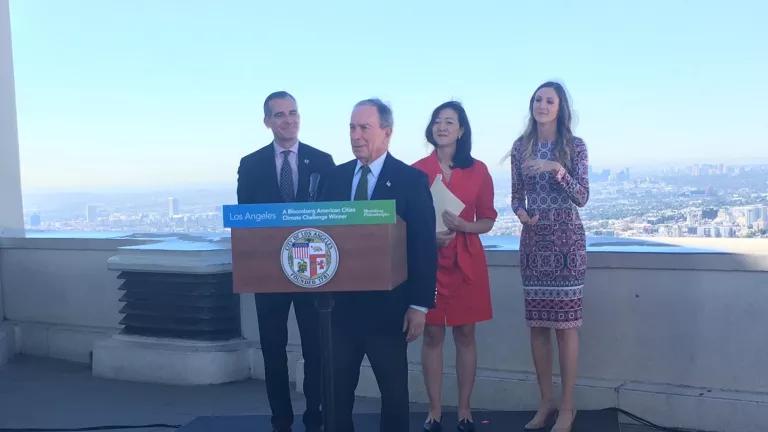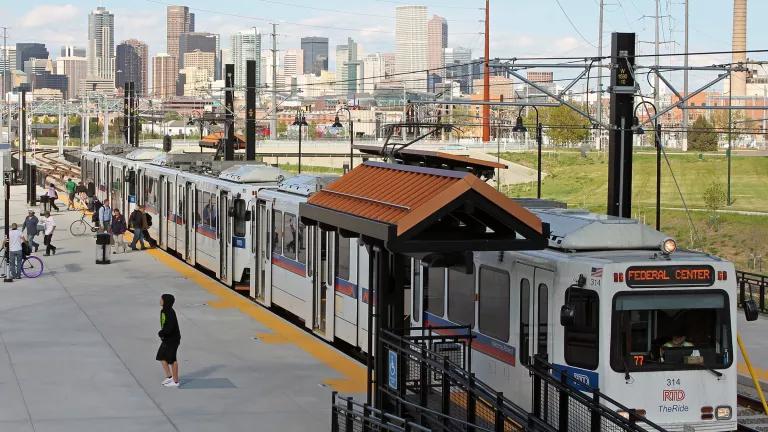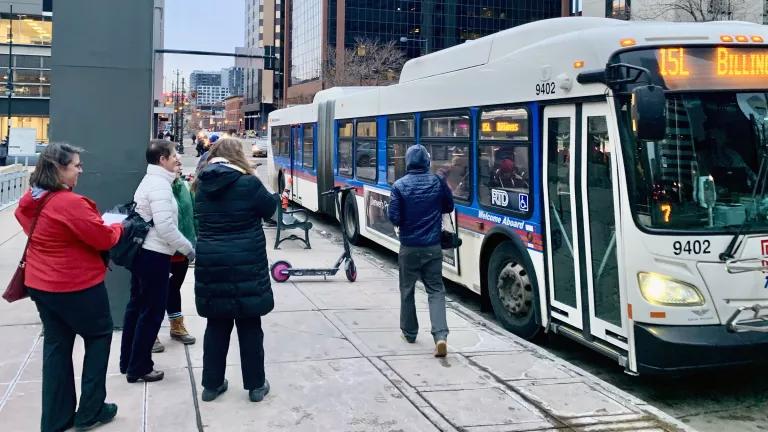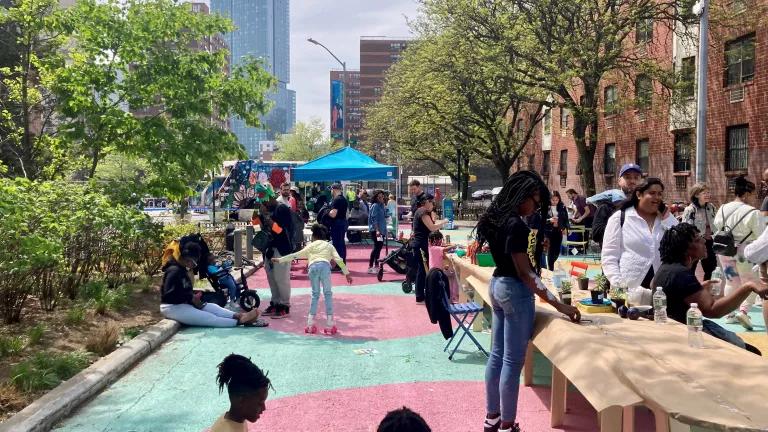Four West Coast Winners Announced in City Climate Challenge

Four West Coast cities are committing to major leadership roles in the fight against climate change.
Bloomberg Philanthropies and the Natural Resources Defense Council today announced that Los Angeles, San Diego, San Jose and Portland, Oregon, are among the 20 winning cities in the Bloomberg American Cities Climate Challenge. These cities were selected because they understand their biggest environmental challenges and want to solve them.
The Bloomberg American Cities Climate Challenge is a $70 million dollar program designed to accelerate 20 ambitious U.S. cities’ efforts to tackle climate change and promote a sustainable future for their residents. NRDC is proud to join with Bloomberg Philanthropies, Delivery Associates, as well as several other partners, to support the winning cities. The Challenge is focused on addressing the two main pollution-causing sectors in the majority of cities—buildings and transportation.
Cities and their surrounding areas play a pivotal role in climate action—together, they account for more than 70 percent of global greenhouse gas emissions and two-thirds of the world’s energy use. In fact, if U.S. buildings were their own country, they would rank third in the world in energy use. It’s also important because residents of our nation’s cities are on the frontlines of climate change—bearing the brunt of its effects, from heat waves to sea level rise. In light of new warnings by a U.N. scientific panel that we could see the worst impacts much sooner than expected if we don’t act swiftly and boldly, cities have a vested interest in doing just that.
The unveiling today of four West Coast cities for Bloomberg’s American Cities Climate Challenge means they are committed to keeping the promise of the Paris climate agreement and have laid out concrete plans to cut climate change pollution, improve the health and well-being of their residents, increase economic opportunity and improve quality of life.
In Los Angeles, the challenge will help cut pollution from its largest source—buildings. By implementing the Existing Building Energy and Water Efficiency Ordinance and setting a decarbonization target for buildings Los Angeles will continue to lead in the buildings sector.
It will also help the city cut pollution from cars and traffic, which steals an average of 100 hours of Angelenos’ time each year. This includes helping to get more electric vehicles on the road by installing EV charging stations citywide and hosting a “from pump to plug” competition to create the charging station of the future, focusing on innovative design. And it includes conceptualizing and creating low-emissions transportation zones.
These new zones are a top priority because they are designed to break through public perceptions about the difficulties of reducing carbon emissions from cars, especially in a city with a car culture such as L.A., by showing what’s possible—from enhancing infrastructure for biking, walking and public transit, to opening areas to people rather than traffic.
Portland’s plans include working to manage traffic congestion by reducing the number of single-occupancy vehicle trips in the most congested part of the city, expanding incentives for public transportation, and establishing two community-based solar projects as part of a future statewide program. At least one of the projects will be financed, constructed, owned and operated by community members, with an emphasis on job training and opportunity for low-income and people of color.
Investments will include dedicated transit lanes, protected bike routes, improved walkways and sidewalks, and clear demarcation of street space for freight, transit and bicycles. The city will also offer subsidized passes for transit and bikeshare services, and hopes to incentivize private transportation providers to participate. Plans also include a possible “Go Zone”—a tech-enabled dynamic pricing system to incentivize the use of low-carbon transportation modes.
San Diego, for its part, will launch a 100% renewable energy program through its local utility with an accompanying campaign to raise public awareness. The city’s renewable energy plans are diverse, with opportunity for near-term impact. Potential projects include community solar projects and the creation of an entirely new organization to implement the program.
San Diego will also update zoning codes to permit more housing near public transit, create a smart mobility app to centralize travel options, and build out programs to cut down energy use in commercial and multifamily buildings. The city will also lead by example, reducing the use of electricity and natural gas for city operations, including in libraries and five municipal building complexes.
In San Jose, the American Cities Climate Challenge will accelerate the implementation of Climate Smart San Jose by developing and implementing a shared electric-vehicle strategy, including education and incentives. It will build out 26 miles of protected bikeways in and around Central San Jose, as well as expand and improve their bikesharing program from 350 to 2000 bikes, half of which will be electric. On top of that, the city will expand their work in the building sector by developing a roadmap to eliminate natural gas use in residential housing, as well as require solar and electric-vehicle readiness in new construction.
While the Trump administration is dead set on moving us backward, these cities—with more on the way—are united in a common goal of leaving our children with a better future. Together, they are showing us the way forward.


